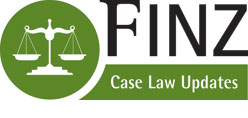|
4606 REVIEW DENIED An employer can be held liable for retaliatory actions by its supervisors; a decision-maker's ignorance of plaintiff’s protected activity does not categorically shield the employer from liability for retaliation if other substantial contributors to the decision bore the requisite animus; a long period of time between an employee's protected activity and an employer's adverse employment action may lead to the inference that there is no causal connection, but if between those events the employer engages in a pattern of conduct consistent with a retaliatory intent, there may be a causal connection; in an action for employment retaliation jury instructions that the employment action must be both detrimental and substantial and must result in a material change in the terms and conditions of employment are sufficient; findings by a jury that an employer did not fail to reasonably accommodate plaintiff’s disability but that the employer failed to engage in an interactive process regarding the disability are not inconsistent, because each is the subject of a separate claim requiring different proof; a finding that the employer’s conduct showed extreme indifference to plaintiff's rights justified a punitive damages award less than four times the award of compensatory damages; although plaintiff lost on as many theories as he won, all were interrelated and rested on the same set of facts, so plaintiff could be found the prevailing party and thereby entitled to attorney fees, which did not have to be apportioned among the winning and losing theories.CitationWYSINGER v AUTOMOBILE CLUB (Consistent Verdicts) 157 CA4 413 [See: GovC 12900 etseq; Richards v CH2M 26 C4 798, T/AT 9/01; Akers v County 95 CA4 1441, T/AT 3/03; Yanowitz v L'Oreal 36 C4 1028, T/AT 4/03; State Farm v Campbell 538 US 408, T/AT 7/03]
|
|



